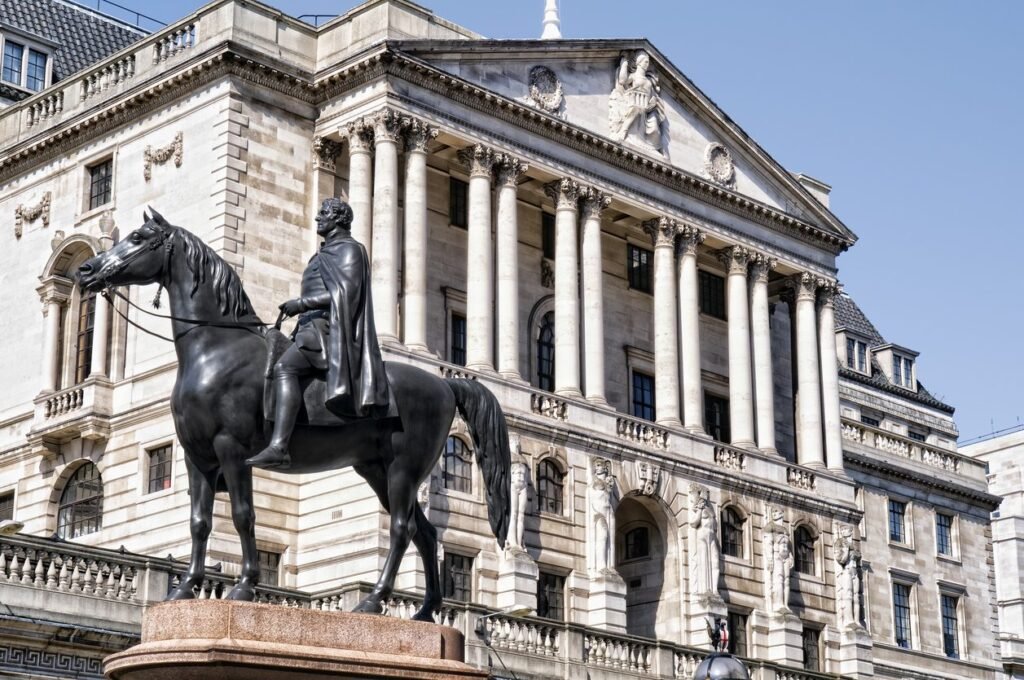This week we’ve had some major announcements relating to UK inflation and interest rates, both of which could have an impact on the property investment outlook.
Today, the Bank of England announced that it would be holding its base rate once more at 5.25%, where it has remained since August 2023. Just yesterday, the Office for National Statistics (ONS) also revealed that UK inflation fell to 3.4% in the year to February 2024, with prices rising at their lowest rate since September 2021.
As regards interest rates, despite the expectation of a fall in inflation levels, most economists in recent weeks had been leaning towards the Bank of England leaving its base rate unchanged.
However, sentiment among members of the Monetary Policy Committee has improved, with eight members voting to leave the rate at its current level, and one voting to reduce it now – meaning no one voted to raise the rate further than it is at present.
The housing market can be impacted by both of these measures. Interest rates can have a direct impact on mortgage rates, which naturally has a knock-on effect on market appetite and affordability; while inflation of course affects what’s in people’s pockets, which again can be a deciding factor when budgeting to buy a property.
Buyers undeterred by high interest rates
There have been numerous reports over recent months that falling mortgage rates have been buoying appetite in the housing market, and this applies to both homebuyers and property investors. What’s more, there has also been an increase in the number of property investors making cash purchases, meaning they are largely unaffected by interest rates.
As Nathan Emerson, CEO of Propertymark, points out, appetite and optimism in the UK property sector appear to be gaining traction at the moment, and buyers are undeterred by the raised interest rate environment.
“The Bank of England issued an optimistic projection last month that inflation could fall back down to pre Covid-19 levels by this summer,” he said. “There are signs that interest rates are not deterring people from buying their first home.
“Propertymark’s own Housing Insight Report found that there has been a 120 per cent increase in the number of potential buyers registered so now that optimism and momentum is gaining in the market, we now need to see interest rates start to fall so that buyers’ affordability can further increase, opening up the market and providing more options for those looking to move home.”
How it can affect the rental market
For property investors specifically, while monitoring buy-to-let mortgage rates and keeping an eye on affordability are crucial, interest rates and inflation rates can also have an impact on the level of demand within the rental market. This can affect rental prices as well as yields, which tend to strengthen when demand is high.
While there are still plenty of buyers in the market, inevitably a number of prospective first-time buyers who had hoped for a fall in interest rates may now stay put in the rental market for slightly longer. This will put pressure on rental supply, meaning buy-to-let property remains in high demand.
Houses in multiple occupation (HMOs) have been particularly popular recently among both property investors and tenants. They can offer higher yields than a buy-to-let, and a rise in HMOs means a rise in overall rental supply, as more people can inhabit one property.
For tenants, it can be a cheaper and more sociable way to rent, as they offer shared facilities and are often located close to areas offering a wide range of employment options, as well as good transport provision and local amenities.
Average rental yields across the UK buy-to-let market as a whole recently rose to an average of 7% in January for the first time, and this is largely thought to be down to the greater level of demand in the market now than there was previously, boosting rents, as well as a slowdown in house price rises.
A “chink of light”
Peter Stimson, Head of Product at the mortgage lender MPowered, commented: “Anyone hoping that the Bank of England would provide some instant relief for mortgage borrowers will be disappointed by today’s decision.
“But there is a chink of light. Yesterday’s sharp fall in inflation, and predictions that CPI could reach the Bank’s 2% target by early summer, have removed much of its rationale for holding interest rates high.
“While just one member of the Bank’s nine-person Monetary Policy Committee voted for an immediate rate cut, none of them is now calling for rates to increase.
“The question now is when and how fast it will cut rates. Our research shows that 65% of mortgage brokers want the Base Rate to be brought down below 3% by the end of 2024.
“Given the pain that high interest rates are imposing on existing homeowners, and on the additional 1.5m homeowners who are due to roll off a fixed-rate mortgage during 2024, we feel a cut to the Base rate is due now.
“As well as alleviating the burden on mortgage borrowers, ending the Base Rate waiting game would give a boost to a housing market which has been held back over the past two years by a combination of high interest rates and a lack of affordability, especially for first-time buyers.”
For more property market and investment news, check out our Property New page.

